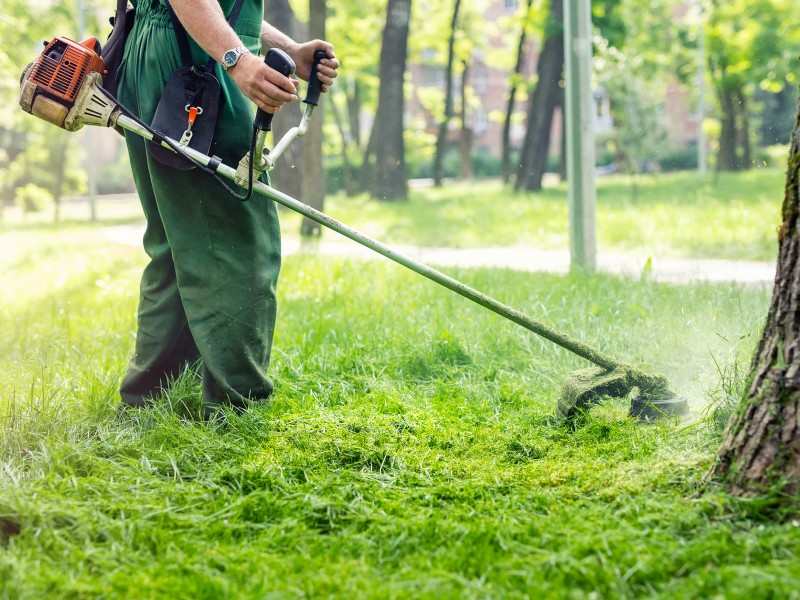As a landscaper, you’ll be responsible for creating visual appeal in front of homes, and commercial and office buildings, using trees, colorful flowers, vibrant plants, and more. If you enjoy working outdoors, and if you’re comfortable working with your hands, then landscaping can be perfect for you. You don’t need to get any kind of formal education to become a landscaper, but you can seek formal training. This training can help you to gain an advantage in your career.
Who Is A Landscaper?
A landscaper designs foliage, paths, water features as well as walkways, using their knowledge of science, math, and horticulture. They also need to use their imagination and creativity when designing elaborate landscapes at everything from private homes to golf courses.
There are landscapers who choose to work a lawn service. Some work for the civil services, some are independent while others work in teams under commercial entities. A landscaper could also have a specialization. They could be a landscape architect, designer, gardener, and more.
How Do You Become A Landscaper?
Are you planning to become a landscaper in Ontario? The province offers low-cost living and a world-class healthcare system. It also has one of the world’s best education systems. Ontario also offers a wide range of cultural and recreational activities. Ontario’s multicultural population and diverse culture makes it an inviting place for people of all nationalities.
If you’re interested in becoming a landscaper, then consider investing in Ontario landscaping insurance as well. This is because working as a landscaper exposes you to certain career risks, such as getting sued by clients. When you have Ontario landscaping insurance, you can better protect your career as well as your finances. To learn more about Ontario landscaping insurance, please click here.
Should you be interested in working as a professional landscaper, this is what you should do:
1. Get Your High School Diploma
You will need your high school diploma, or GED equivalent. While you’re still in school, consider taking classes in horticulture and gardening. You can even join your school’s gardening club, to gain the foundational skills you need to be a landscaper.
2. Learn Various Skills
You can also search for groups that are interested in landscaping, or even gardening. Join them to learn all about planting, using gardening tools, or operating specialized machinery. Try to find out whether the community college in your area offers programs related to continuing education. You can also get in touch with the department of agriculture in your state, to learn about available programs.
If there’s a botanical garden in your area, then stay in touch with them. They might be able to help you find new job opportunities.
3. Doing An Apprenticeship
You can find local nurseries or even landscaping companies, that can help you find apprenticeship opportunities. Through an apprenticeship, you’ll be able to enjoy on the job training and can even get an official offer upon completing your apprenticeship.
Through your apprenticeship, aim to learn about gardening drawings, the environment, and how to landscape effectively.
4. Getting A Degree
You could alternatively also choose to get a degree, or get yourself certified in landscaping, horticulture, or a similar field. If you want to expand your career in this field, then consider opting for a bachelor’s degree.
5. Licensing Requirements
The licensing requirements for becoming a landscaper can differ between states. In some places, you’ll need a license if you want to install systems for irrigation. You may also need a license to operate some kinds of machinery, use pesticides, and more. Understand how to maintain your license as well, after you obtain it.
6. Earning Your Certifications
To increase your chances of getting landscaping work, consider getting yourself certified. You can approach NALP or PLANET to get yourself certified. It can take between six to ten weeks for you to complete a certification course. You can get certified to work as a grounds technician, in water based system layouts, as a lawn care technician, and more.
7. Starting Your Own Business
Some landscapers go on to start their very own landscaping businesses. If you start a business, you’ll need to manage your tools, advertise the business, and also attract and retain customers. There are certification courses that you can pursue, that will help you to start your own business. You can even get yourself certified in running a landscaping business.
Conclusion
If you want to work as a landscaper, then you’ll need to have an interest in gardening or horticulture. Although there aren’t any specific entry requirements to work in this field, you’ll need to at least get your high school diploma or GED equivalent. You can also take classes in relevant fields to boost your knowledge of landscaping.
After you graduate high school, you can either choose to work as an apprentice or go to trade school. Although these paths are different, they’ll both lead you toward becoming a landscaper. Throughout your career as a landscaper, you should keep upgrading your skills, and gaining new certifications. Use this guide to learn all about how to become a landscaper.

